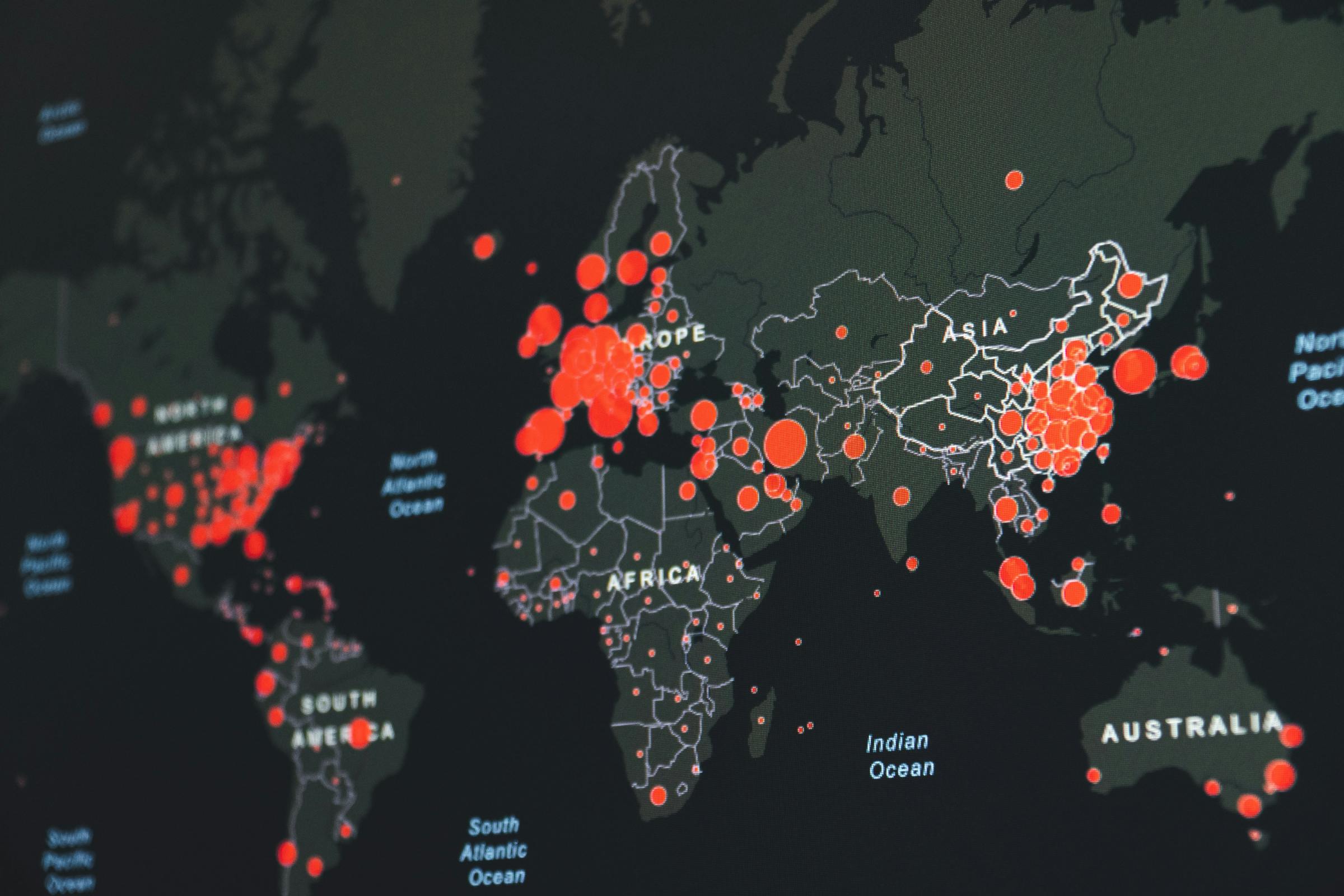What is COVID?
COVID is an infectious disease caused by the SARS-CoV-2 virus. A highly contagious strain of the virus caused massive global shutdowns throughout the year 2020 and into 2021. It was given the name ‘COVID-19’ because the virus was first discovered in December 2019.
The initial COVID pandemic took millions of lives. The US saw 385,443 COVID-related deaths in 2020 and 446,197 in 2021 as the pandemic continued.
The virus continues to evolve even today. Omicron and Deltacron were two recent variants. In fact, scientists doubt COVID-19 will ever be completely eradicated, instead becoming an endemic disease.
In addition to having a high death toll, the pandemic of 2020-2021 caused major financial losses throughout the world. The global supply chain is still recovering.
The H-1B Visa
The H-1B visa is one of the most popular work visas for skilled workers and professionals looking to pursue a career in the United States.
In fact, over half a million applications are submitted to the United States Citizenship and Immigration Services (USCIS) every year, but only about 85,000 of them are accepted. This leaves thousands of potential applicants with no way forward.
So how can you find out if you qualify for an H-1B visa?
The H-1B visa is meant to fill highly specialized positions with employees who have matching skills. For that reason, immigrants seeking to work in the US must hold at least a Bachelor’s degree or their home country’s equivalent.
Before even applying for the H-1B visa, foreign workers must already have a job secured with a US employer. The employer will submit most of the necessary documents and, in many cases, pay the majority of the fees associated with the visa application.
A limited number of H-1B visas are available every year, so they must be given out via a lottery system.
Everyone who registers for the H-1B visa is entered into a lottery that randomly selects qualified applicants. However, there is a limit to how many visas are approved. The cap can change year-to-year, but it has most recently been limited to 85,000 visas.
There are two categories for the lottery: Regular cap and Master’s cap. Applicants with Bachelor’s degrees are placed in the Regular cap. Those with Master’s degrees or higher are in the other cap.
Additionally, Master cap applicants get a second shot at the lottery if they aren’t chosen from their specific cap. Their applications are added to the Regular cap lottery alongside the Bachelor's degree holders.
What’s different in the visa process since the COVID-19 pandemic?
How COVID Changed to the H-1B Visa Process
The H-1B visa program has been around for over 30 years. Throughout that time, it has undergone several changes. The changes made by the USCIS have greatly impacted how companies hire foreign workers and how those same workers look for jobs in the United States.
Although the H-1B visa program has been around since 1990, it only recently went digital. In 2019, the USCIS implemented an online registration process. This new system is designed to make the process of applying for an H-1B visa a lot easier.
With the new system, H-1B visa applicants must register for their selected lottery online. Registering for the lottery doesn’t guarantee entry into the US. If they are chosen in the lottery, they must submit a visa petition. The initial registration and the visa petition are two separate steps in the H-1B visa process.
The online registration process began before the COVID-19 pandemic, so how did COVID change the H-1B visa landscape?
Due to travel restrictions and a decline in employment, fewer US employers were willing to sponsor applicants from foreign workers. As a result, the number of applicants was greatly reduced compared to previous years.
In fact, the cap limit of 85,000 wasn’t met during the initial lottery due to a lack of applications.
What Happens if Visa Cap Isn’t Met?
Due to the rising demand for H-1B visas, the number of applications received each year far exceeded the visa cap. This wasn’t true in the years following the coronavirus pandemic. If the initial cap isn’t met, the US holds additional lotteries until all the visas are allotted.
In 2020, 2021, and 2022, the USCIS held two separate lottery periods to fill the visa cap. Remember, when approved for a visa, there is a start date of October 1, regardless of when the visa is granted.
Future of the H-1B Program
Despite the lower number of applicants, the H-1B visa program is still highly competitive. And if you apply, you’ll likely be vying for a limited number of spots. That’s why it’s important to make sure that you apply as early as possible during the season.
In August of 2022, the US government announced that the cap quota for the 2023 fiscal year (Oct. 1, 2022 - September 30, 2023) had already been met. As a result, there won’t be a second or third lottery for the 2023 fiscal year.
What’s Next?
The H-1B visa program continues to be an extremely popular program, despite the setbacks caused by COVID. The online registration portal is one step toward streamlining the H-1B visa process.
However, many steps and required documents are still required when submitting your visa petition. The process is complex and time-consuming.
If you’re wondering how to apply for an H-1B visa or have questions about how COVID changed the process, Visa2US is here to help. Experts are waiting to navigate you through the ins and outs of the H-1B visa landscape.














